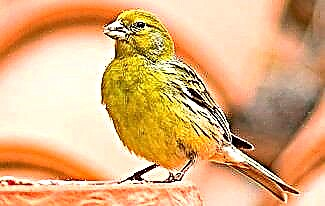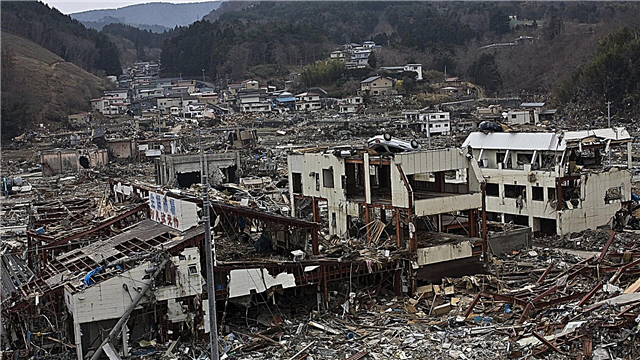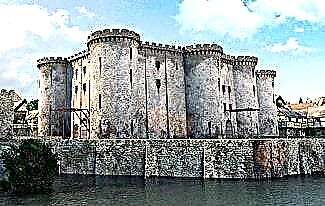Vasily Ivanovich Chapaev (Chepaev; 1887-1919) - a participant in the First World War and the Civil War, head of a division of the Red Army.
Thanks to the book by Dmitry Furmanov "Chapaev" and the film of the same name by the Vasiliev brothers, as well as many anecdotes, he was and remains one of the most popular historical figures of the era of the Civil War in Russia.

There are many interesting facts in Chapaev's biography, which we will discuss in this article.
So, before you is a short biography of Vasily Chapaev.
Chapaev's biography
Vasily Chapaev was born on January 28 (February 9), 1887 in the village of Budaike (Kazan province). He grew up in the peasant family of the carpenter Ivan Stepanovich. He was the third of 9 children to his parents, four of whom died in early childhood.
When Vasily was about 10 years old, he and his family moved to the Samara province, which was famous for its grain trade. Here he began attending a parish school, which he attended for about 3 years.
It is worth noting that Chapaev Sr. deliberately took his son out of this school due to a serious incident. In the winter of 1901, Vasily was placed in a punishment cell for violation of discipline, leaving him without outer clothing. The frightened boy thought that he could freeze to death if the teachers suddenly forgot about him.
As a result, Vasily Chapaev broke a window and jumped from a great height. He only managed to survive thanks to the presence of deep snow, which softened his fall. When he got home, the child told his parents about everything and was sick for more than one month.
Over time, the father began to teach his son the carpentry craft. Then the young man was drafted into service, but six months later he was discharged due to a thorn in the eye. Later he opened a workshop for the repair of agricultural tools.
Military service
After the outbreak of the First World War (1914-1918), Chapaev was again called up for service, which he served in an infantry regiment. During the war years, he went from a junior non-commissioned officer to a sergeant major, showing himself to be a brave warrior.
For his services, Vasily Chapaev was awarded the St. George medal and St. George's crosses of the 4th, 3rd, 2nd and 1st degrees. He participated in the famous Brusilov breakthrough and the siege of Przemysl. The soldier received many wounds, but each time he returned to duty.
Civil War
According to the widespread version, Chapaev's role in the Civil War is too exaggerated. He gained all-Russian popularity thanks to the book by Dmitry Furmanov, who served in the division of Vasily Ivanovich as a commissar, as well as the film "Chapaev".
Nevertheless, the commander was really distinguished by courage and courage, thanks to which he had authority among his subordinates. The RSDLP (b), which he joined in 1917, was not the first party in Chapaev's biography. Before that, he managed to collaborate with the Socialist-Revolutionaries and anarchists.
Having joined the Bolsheviks, Vasily was able to quickly develop a military career. At the beginning of 1918 he directed the dispersal of the Nikolaev zemstvo. In addition, he managed to suppress several anti-Soviet riots and create a district Red Guard. In the same year, he reorganized the detachments into the regiments of the Red Army.

When Soviet rule was overthrown in Samara in June 1918, this led to the outbreak of the Civil War. In July, the White Czechs took control of Ufa, Bugulma and Syzran. At the end of August, the Red Army under the leadership of Chapaev recaptured Nikolaevsk from the Whites.
In the winter of the following year, Vasily Ivanovich went to Moscow, where he was to "improve his qualifications" at the military academy. However, the man soon escaped from her, because he did not want to waste time at his desk.
Returning to the front, he rose to the rank of commander of the 25th rifle division, which fought with Kolchak's soldiers. During the battles for Ufa, Chapaev was wounded in the head. Later he was awarded the honorary Order of the Red Banner.
Personal life
In his work, Furmanov describes Vasily Chapaev as a man with graceful hands, a light face and blue-green eyes. In his personal life, the man won much less victories than at the front.
Over the years of his personal biography, Chapaev married twice. An interesting fact is that both wives were called Pelagey. At the same time, both one and the second girl could not remain loyal to the division commander.
The first wife, Pelageya Metlina, left her husband for an employee of the Saratov horse tram, and the second, Pelageya Kamishkertseva, cheated on him with the head of the ammunition storage.

From his first marriage, Vasily Chapaev had three children: Alexander, Arkady and Claudia. It is worth noting that the man also did not remain faithful to his wives. At one time he had an affair with the daughter of a Cossack colonel.
After that, the officer fell in love with Furmanov's wife, Anna Steshenko. For this reason, conflicts often arose between the Red Army. When Joseph Stalin asked to diversify the film "Chapaev" with a romantic line, Steshenko, being a co-author of the script, gave the only female character her name.
This is how the famous Anka the machine gunner appeared. An interesting fact is that Petka was a collective image of 3 comrades in arms of the division commander: Kamishkertsev, Kosykh and Isaev.
Death
Many still believe that Chapaev drowned in the Ural River, having received a serious injury before that. This is due to the fact that such a death was shown in the film. However, the body of the legendary commander was not buried in water, but on land.
For the massacre of Vasily Ivanovich, the White Guard Colonel Borodin organized a special military group. In September 1919, the whites carried out an attack on the city of Lbischensk, where a hard battle ensued. In this battle, the Red Army soldier was wounded in the arm and stomach.
Co-workers transported the wounded Chapaev to the other side of the river. However, by that time he was already dead. Vasily Chapaev died on September 5, 1919 at the age of 32. The cause of his death was a great loss of blood.
Fighting comrades dug a grave in the sand with their hands and disguised it from enemies with reeds. As of today, the alleged burial place of the man is flooded due to the change in the channel of the Urals.
Chapaev Photos
















